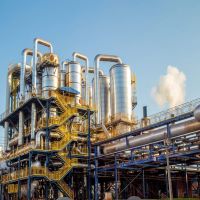Vehicle manufacturers will be addressing the challenges of Ethanol blended fuels, and options of availability of E20 reference fuels locally in India is being explored with various refineries in India

International Centre for Automotive Technology (ICAT) organized a two-day knowledge-sharing webinar on ‘Ethanol Economy’ through its technology platform of ASPIRE to celebrate Azadi Ka Amrit Mahotsav.
Experts from India and global who have been working on developing vehicles and infrastructure to support Ethanol Economy shared their experiences in the webinar highlighting opportunities and challenges which one might face while adopting and developing technologies for Ethanol Blended Fuels.
Dinesh Tyagi, Director, ICAT and Member Secretary, Governing Board, ASPIRE inaugurated the webinar. In his address, he emphasised the need of embracing the Ethanol economy in view of energy independence and sustainability for India.
Dr. S. S. V Ramakumar, Director - R&D, IOCL who is also one of the co-authors of Ethanol Economy Policy document prepared under Niti Aayog presented the current scenario of ethanol blending in the country which is to the tune of 8.5% and which is slated to increase 10% ethanol by end of FY 2021-22 by concerted efforts of Oil Marketing Companies (OMCs) and various state governments. He mentioned that the current capacity of 300 crore litres Ethanol increased to 400 crore litres for 10% blend. By 2025, it is estimated that 1,000 crore litres of Ethanol will be required for the country.
Dr. Reiji Mathai, Director, Automotive Research Association of India (ARAI) stated that by 2023 some places in India will be selling 20% blended Ethanol, and by 2025 it will be available all across India. He mentioned that vehicle manufacturers will be addressing the challenges of Ethanol blended fuels and he mentioned options of availability of E20 reference fuels locally in India is being explored with various refineries in India.
C. V. Raman, Chief Technical Officer, Maruti Suzuki India, and President, ASPIRE Governing Board said, "Ethanol blended fuels has the potential to replace 18% gasoline consumption. E20 fuels will also lead to 16% reduction in harmful greenhouse gases. However, he expressed his concern about customer acceptability and impact of compatibility with ethanol fuels with on-road vehicles which are not developed to run on 20% ethanol blended fuel which might result in increased fuel consumption and higher maintenance costs of vehicles. He also emphasised on the need to recognise ethanol as a carbon neutral fuel and mentioned that RON 95 fuels should be the standard for all ethanol blended fuels from E20 to E85/E100."
Vikram Kasbekar, ED & CTO, Hero MotoCorp expressed his concern on E20 fuel impact on carbureted two wheelers as a large number of such two wheelers are running across length and breadth of the country. He suggested E10 to be the base fuel for a certain period of time to compensate customers for the loss of fuel economy. He stated that clarity in the energy road map is imperative for the industry.
The Government of India is expecting investments of up to Rs. 41,000 crore to help India achieve its ethanol blending target of 10 percent by 2022 and 20 percent by 2025.
Subscribe to our newsletter & stay updated.